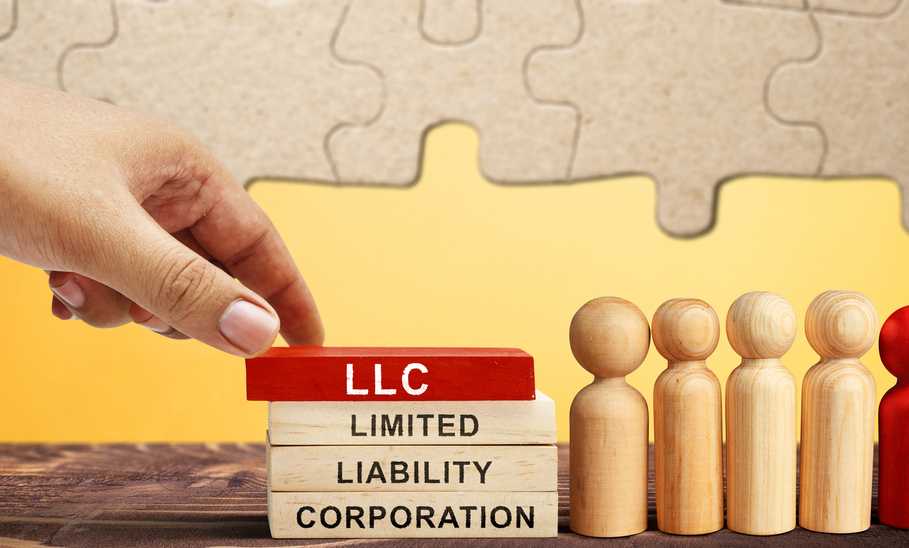How to Start an LLC in South Carolina: All You Need to Know

Our evaluations and opinions are not influenced by our advertising relationships, but we may earn a commission from our partners’ links. This content is created by TIME Stamped, under TIME’s direction and produced in accordance with TIME’s editorial guidelines and overseen by TIME’s editorial staff. Learn more about it.
South Carolina consistently ranks as one of the nation's most business-friendly states due to its tax incentives, infrastructure, and easy access to East Coast markets. If you're considering forming a South Carolina limited liability company (LLC), here's what you need to know.
Found is a financial technology company, not a bank. Business banking services are provided by Piermont Bank, Member FDIC. The funds in your account are FDIC-insured up to $250,000 per depositor for each account ownership category. The Found Mastercard Business debit card is issued by Piermont Bank pursuant to a license from Mastercard Inc. and may be used everywhere Mastercard debit cards are accepted.
*Advanced, optional add-on bookkeeping software available with a Found Plus subscription for $19.99/month or $1149.99/year. There are no monthly account maintenance fees, but transactional fees for wires, instant transfers, and ATM apply. Read more here.
LLCs are treated as pass-through entities by default. When filing their state and federal tax returns, each member pays personal income taxes on their share of the LLC's income and profits. South Carolina's individual income tax rate ranges from 0% to 6.2% for the 2024 tax year.
LLC members in South Carolina (and elsewhere) pay the 15.3% federal self-employment tax, consisting of 12.4% for Social Security and 2.9% for Medicare.
LLCs that elect C corporation status are subject to South Carolina's5% corporate income tax.
The State of South Carolina has two guidelines for naming an LLC:
You can confirm whether your chosen LLC name is available by using the South Carolina Secretary of State Business Name Search. If you need more time to file your articles of organization, you can reserve the name for up to 120 days by mailing an Application to Reserve a Limited Liability Company Name and submitting the $25 filing fee.
LLCs in South Carolina must continuously maintain a registered agent and registered office to accept legal correspondence ("service of process") on the LLC's behalf. The registered agent can be a resident of South Carolina or an entity authorized to do business in the state. The individual's or entity's business office must be the same as the registered office.
An LLC is created by filing articles of organization with the South Carolina Secretary of State. You'll provide details about your LLC and registered agent, including names and addresses. The filing fee is $110, and you can file online or by mail.
Once you form your LLC in South Carolina, you'll need to check off five more action items—some optional, depending on your business. Review each one of these to see which applies to you.
Unless you have a single-member LLC, you'll need an EIN for federal income tax purposes. You'll also need one to open a business bank account (such as Found) or apply for credit for your LLC. You can apply for an EIN for free on the IRS website.
South Carolina doesn't require a standard business license at the state level. Still, your LLC may need a tax, occupational, or local license, depending on what your business does. Visit the South Carolina Department of Consumer Affairs website for state business-licensing requirements. Contact a city or county clerk in your area for local licensing requirements.
If your LLC has multiple members or employees, sells goods, or collects sales tax, you'll need to register with the state's Department of Revenue to satisfy state tax requirements. Visit the South Carolina Business One Stop website to learn more.
You don't need an operating agreement to form an LLC in South Carolina. Still, drafting an operating agreement is recommended because your LLC could face legal and operational complications without one. A comprehensive operating agreement should describe your LLC's business structure, how it will be run, and the members' responsibilities and obligations.
Starting Jan. 1, 2024, all LLCs must file a Beneficial Ownership Information (BOI) report with the U.S. Financial Crimes Enforcement Network (FinCEN). You have until Jan. 1, 2025, to file an initial BOI report if you started your LLC before Jan. 1, 2024. Otherwise, you have 90 days to file if you form the LLC in 2024—or 30 days if you start an LLC in 2025 or beyond.
Whether you're an established LLC or just getting started, numerous national and South Carolina resources can help your small business succeed:
South Carolina is a business-friendly state with straightforward requirements for forming an LLC. If the process seems daunting, consider using an online business-formation service to establish your LLC. For example, LegalZoom has three plans ($0, $249, and $299) with various levels of tools and guidance to help you launch your new business.
Forming an LLC in SC is straightforward. You'll need to choose a unique business name, designate a registered agent, and file your articles or organization with the state.
If you file your articles of organization online, your LLC will generally be approved within one or two business days. Filing by mail takes up to three or four weeks, including processing and the time your documents are in the mail. South Carolina doesn't offer expedited LLC service.
South Carolina LLC members pay state and federal income taxes on their share of the company's income, plus the 15.3% federal self-employment tax. LLCs that elect C corporation status are subject to the 5% corporate income tax.
The information presented here is created by TIME Stamped and overseen by TIME editorial staff. To learn more, see our About Us page.




